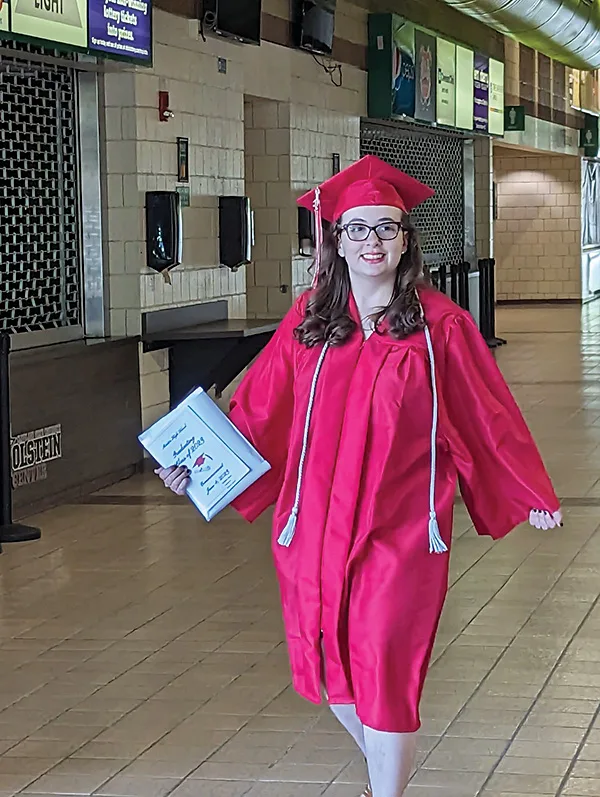
Cora Gedeon is a cheerful and hardworking young autistic woman. A recent high school graduate, Cora now has a part-time job, lots of hobbies and a bright future ahead, but her journey here didn’t happen overnight.
“We started preparing Cora very early on learning life skills,” says Carrie Gedeon, Cora’s mother. “At five years old, we started teaching her how to do laundry. We made a picture chart of what the washing machine dials should be and got her started on washing towels.”
What may seem like a simple chore was actually laying the groundwork needed to prepare Cora for independence.
Post-secondary transition refers to the time after high school, when an individual may explore continuing education, employment opportunities or independent living.
“This planning is crucial because it makes sure the child is equipped based on their ability,” says Ruth James-Dickens, a teen/adult helpdesk specialist with Milestones Autism Resources. “Parents worry about the uncertainty of their child’s future, particularly if the child has more involved needs. Their concerns are valid because they are now stepping into the unknown.”
In order to get a head start on transition planning, individuals and caregivers should consider the individual’s interests, strengths and challenges, then apply those to wants and needs concerning education, employment and housing. Consider skill level, what support might be needed, and which environment makes the individual the most comfortable. Some might want to explore a two- or four-year degree, while others might be interested in learning a trade, or entering the workforce through employment opportunity programs.
“Cora thrives when she is with others. We wanted to make sure that didn’t end,” Carrie Gedeon says.
“At my job I clean, deliver food to customers, and am learning how to do new tasks every day,” Cora says. “Now that I am 20, I am practicing to self-advocate, staying active by running, doing yoga, and taking dance classes. I think I will someday live with friends and keep working.”
Having a plan in place is what made the difference for Cora — and Carrie Gedeon says that is the whole idea.
“It may be overwhelming, but our kids are going to grow up into adults. We need to start planning for adulthood as soon as we get the diagnosis.”
Milestones Autism Resources provides resources for autistic individuals, families and professionals in Ohio. Its free Helpdesk, annual ConneXtion conference, training workshops, and vetted online resources can help families and their children plan at any age, stage or ability. Visit milestones.org.

